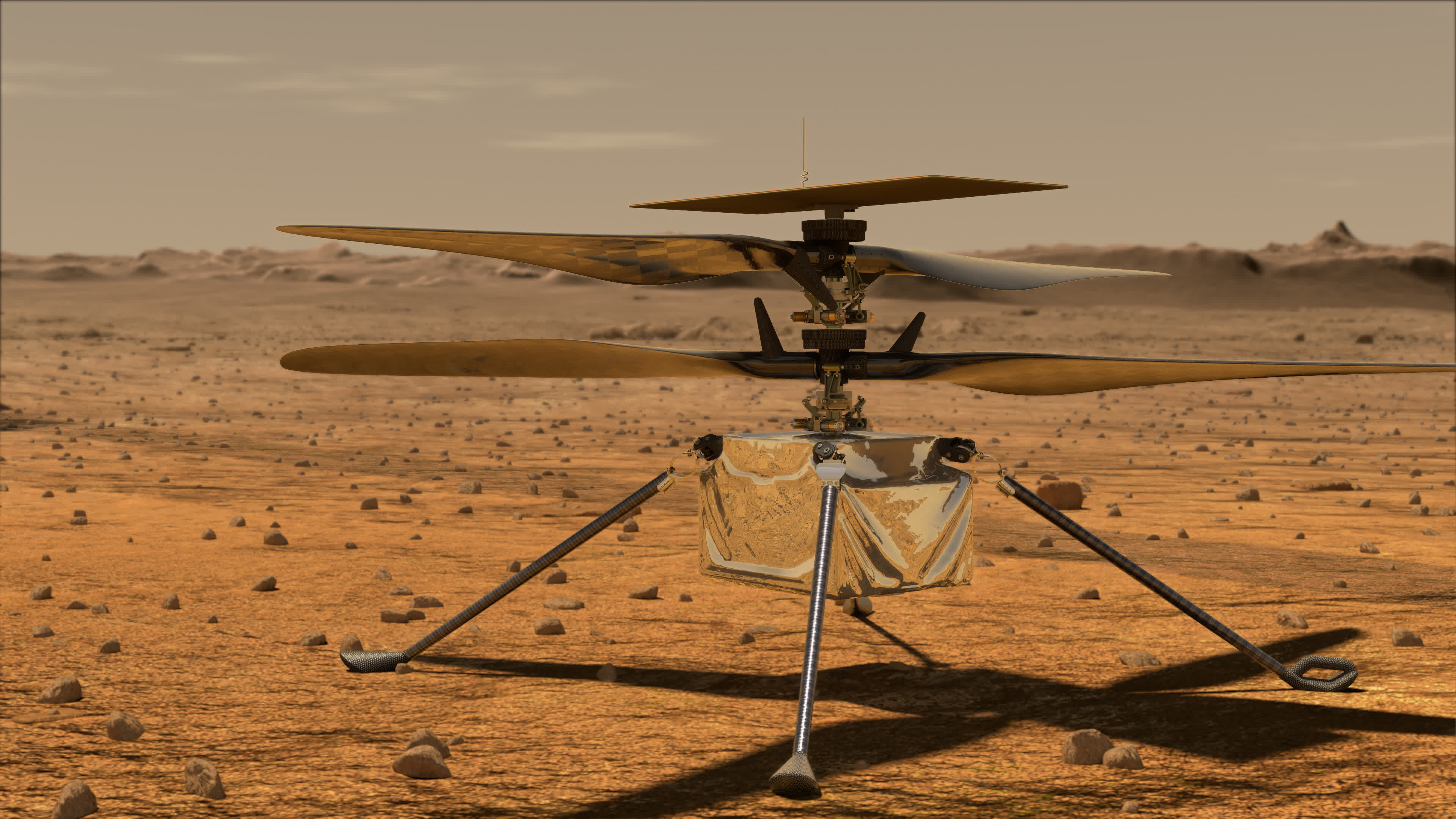Something to look forward to: NASA's latest explorer rover is set to make contact with Mars' surface next month, on February 18. It's an important step for the space agency, and not just due to the rover itself: its cargo is equally important. The Perseverance rover is carrying the first-ever "Mars Helicopter," aptly known as Ingenuity.

Ingenuity is a small, lightweight helicopter with two rotors, each made from durable carbon fiber. The rotors will spin in opposing directions, at speeds of "around 2,400 rpm," which is "many times" faster than what you'd see on any passenger helicopter on Earth.
So, why are those speeds necessary, and why is Ingenuity so light? According to NASA, Mars' extremely thin atmosphere is to blame. With much less usable air than Earth, any flying vehicle attempting to fly on the Red Planet would need considerably faster rotors to generate enough lift to get off the ground.
If the mission is a success, it could revolutionize the way scientists approach Mars exploration. So far, they've had to rely on slow-rolling, ground-based rovers to navigate, but if Ingenuity proves capable of withstanding the harsh environment of Mars, the technology might become much more common. Perhaps a more refined design could be made at a later date?
We wish NASA's engineers, and Ingenuity itself, all the best in their endeavors. Whether it lands and takes off successfully or not, you can be certain that we'll be covering Ingenuity's landing here, so stay tuned come February 18.
https://www.techspot.com/news/88408-nasa-mars-helicopter-ingenuity-reach-red-planet-next.html